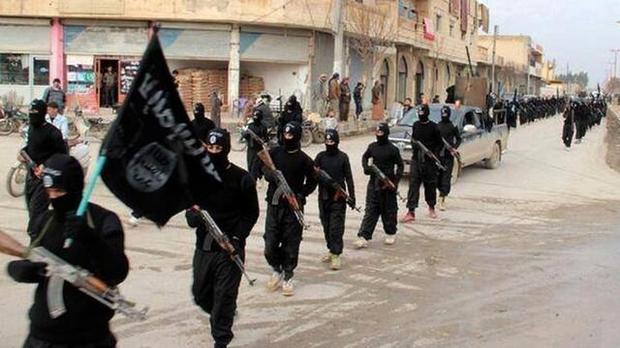Syria Warns US Against Act of 'Aggression"
Copy of Syria has warned the US that any action in its territory against the Islamic State

NEW DELHI: Following United States President Barack Obama’s declaration of a four step strategy to fight the Islamic State (IS) that includes within it the prospect of air strikes on Syria, a minister in the Syrian government has warned the US that any foreign intervention in the country will amount to a an act of aggression unless it is approved by Damascus.
Ali Haidar, minister of national reconciliation affairs, speaking to reporters in the Syrian capital, said, “Any action of any type without the approval of Syrian government is an aggression against Syria. There must be cooperation with Syria and coordination with Syria and there must be a Syrian approval of any action whether it is military or not."
Syria has repeatedly expressed its willingness to work with foreign governments to tackle IS fighters, who are waging a war against Syrian President Bashar-al-Assad and have captured large swathes of territory in the country. Ironically, the IS’ rise in Syria was facilitated by foreign government’s in the US, who, in an attempt to topple Assad, have supported anti-government militias with aid, equipment, and training.
Although there is considerable infighting amongst the many anti-government groups, with the IS militants facing setbacks at the hands of the Islamic Front and the Free Syrian Army, for instance, there is evidence to point to the fact that IS benefited from this foreign aid and assistance in its initial days.
Obama, who has previously warned of military action against Syria on other pretexts including the alleged use of chemical weapons by the Assad regime, made the reference to air strikes against Syria in a 9/11 speech that focused on fighting the IS. With airstrikes comprising step number one, Obama said that the strikes will not be limited to Iraq, as “I have made it clear that we will hunt down terrorists who threaten our country, wherever they are. That means I will not hesitate to take action against ISIL in Syria as well as Iraq.”
Obama’s strategy has received support from various other countries, including France who may join the IS-bomb club. "In Iraq... we support the formation of an inclusive government. We will participate if necessary in an aerial military action," French Foreign Minister Laurent Fabius said in a speech in Paris.
The French Foreign Minister added that whilst France was willing to work with the government in Iraq, it will not work with Assad’s government in Syria “because he has an established link" with IS. There is no indication or any evidence of Assad having a link with IS, as the Syrian government continues to try and win its territory back from anti-government militias which include the IS, and has repeatedly asserted its willingness to fight the IS.
The US also received support from ten Arab countries: Egypt, Iraq, Jordan, Lebanon and six Gulf states including Saudi Arabia and Qatar. "The participating states agreed to do their share in the comprehensive fight against ISIL, including ... as appropriate, joining in the many aspects of a coordinated military campaign against ISIL," a statement, following a meeting between Arab countries’ leaders -- which excluded Iran and Syria -- with US Secretary of State John Kerry said.
In the meanwhile, Germany ruled out the prospect of taking part in air strikes in Iraq or Syria. "To be quite clear, we have not been asked to do so and neither will we do so," German Foreign Minister Frank-Walter Steinmeier said at a news conference in Berlin. Germany however, is already providing equipment to Kurdish fighters battling IS militants in Iraq.
The United Kingdom has given a mix response, with Foreign Secretary Philip Hammond initially saying that the UK had “ruled out nothing” in reference to airstrikes and following that with a clarification that said, “Let me be clear: Britain will not be taking part in any airstrikes in Syria. We have already had that discussion in our parliament last year and we won't be revisiting that position."
Russia, in turn, has strongly condemned the prospect of air strikes in Syria, saying that such an action would be a “gross violation” of international law. "The US president has spoken directly about the possibility of strikes by the US armed forces against Isis positions in Syria without the consent of the legitimate government," Russian Foreign Ministry spokesperson Alexander Lukashevich said. "This step, in the absence of a UN security council decision, would be an act of aggression, a gross violation of international law."



